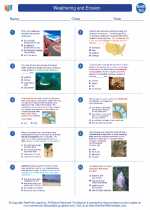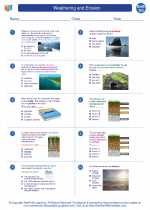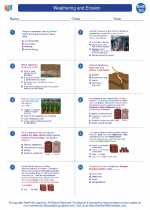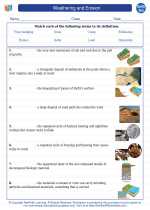Plants
Plants are multicellular organisms that belong to the kingdom Plantae. They are autotrophic, meaning they produce their own food through the process of photosynthesis. Plants play a crucial role in the ecosystem as they provide oxygen, food, and habitat for other organisms.
Plant Structure
Plants have a variety of structures that help them carry out essential functions. These structures include:
- Roots: Responsible for anchoring the plant in the soil and absorbing water and nutrients.
- Stems: Provide support for the plant and transport water, nutrients, and sugars throughout the plant.
- Leaves: Function in photosynthesis, where they absorb sunlight and convert it into energy.
- Flowers: Reproductive structures that produce seeds and fruits.
Plant Life Cycle
Plants have a unique life cycle that involves both sexual and asexual reproduction. The typical plant life cycle includes the following stages:
- Seed Stage: The plant begins as a seed, containing the embryo of the plant.
- Germination: The seed sprouts and begins to grow into a seedling.
- Vegetative Growth: The plant grows larger and develops leaves, stems, and roots.
- Reproductive Stage: The plant produces flowers, which are pollinated and develop into fruits containing seeds.
Adaptations of Plants
Plants have evolved a variety of adaptations to thrive in different environments. These adaptations include:
- Root Structures: Plants have various root structures, such as taproots and fibrous roots, to adapt to different soil types and water availability.
- Leaf Modifications: Some plants have modified leaves, such as spines or succulent leaves, to conserve water in arid environments.
- Reproductive Strategies: Plants have developed diverse reproductive strategies, such as wind or animal pollination, to ensure successful reproduction.
Human Uses of Plants
Plants have numerous uses for humans, including:
- Food: Many plants are cultivated for food, providing essential nutrients for human consumption.
- Medicine: Various plant species are used in traditional and modern medicine for their medicinal properties.
- Building Materials: Wood and fibers from plants are used in construction and manufacturing.
Study Guide
When studying plants, it's important to focus on the following key concepts:
- Understanding the process of photosynthesis and the role of different plant structures in this process.
- Exploring the diversity of plant species and their adaptations to different environments.
- Investigating the interactions between plants and other organisms, such as pollinators and symbiotic relationships with fungi.
- Analyzing the impact of human activities on plant ecosystems and conservation efforts to protect plant biodiversity.
By mastering these concepts, you will gain a comprehensive understanding of the importance of plants and their role in the natural world.
[Plants] Related Worksheets and Study Guides:
.◂Earth Science Worksheets and Study Guides High School. Weathering and Erosion

 Worksheet/Answer key
Worksheet/Answer key
 Worksheet/Answer key
Worksheet/Answer key
 Vocabulary/Answer key
Vocabulary/Answer key
 Vocabulary/Answer key
Vocabulary/Answer key
 Vocabulary/Answer key
Vocabulary/Answer key
